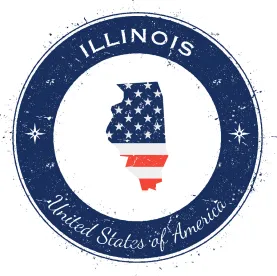On April 13, 2020, the Illinois Workers’ Compensation Commission passed an emergency amendment that will make it easier for COVID-19 “first responders” and “front line workers” in Illinois to obtain workers’ compensation benefits for an injury or period of incapacity resulting from exposure to the COVID-19 virus during the COVID-19 state of emergency.
As defined by the emergency amendment, COVID-19 first responders and front line workers include individuals “employed as police, fire personnel, emergency medical technicians, or paramedics and all individuals employed and considered as first responders, health care providers engaged in patient care, correction officers and the crucial personnel” who work in “essential businesses and operations” identified in Governor Pritzker’s March 20 stay-at-home order.
Under the emergency amendment, once a COVID-19 first responder or front line worker proves that the injury or period of incapacity resulted from exposure to the COVID-19 virus during the state of emergency (which began in Illinois on March 9), the worker need not prove that the exposure arose out of and in the course of employment or that the injury or period of incapacity was causally connected to the hazards or exposure from employment. Instead, the emergency amendment amends the rules of evidence in arbitration proceedings before the Illinois Workers’ Compensation Commission, creating rebuttable presumptions that relieve the employee from proving these elements that a worker must typically prove in a workers’ compensation claim.
The emergency amendment makes no distinction between onsite and remote workers of essential businesses and operations even though the risk of exposure would logically appear to be different for these two categories of workers. In addition, and perhaps mistakenly, the emergency amendment omits the “media” from the list of essential businesses and operations specifically identified by the emergency amendment. Finally, the emergency amendment does not currently apply to workers in non-essential businesses and operations – even those who are required to work onsite to perform the minimum basic operations necessary to keep the business going or to allow others to work remotely.
While other states have passed measures designed to make it easier for first responders and health care workers to obtain workers’ compensation benefits resulting from exposure to the COVID-19 virus, Illinois appears to be the first state to expand such protections to all workers who work in essential businesses.
The business community has reacted adversely to the scope of the emergency amendment, as it will almost certainly result in increased costs to business owners at a time when they are struggling both financially and operationally to meet the critical infrastructure demands.
The Illinois Workers’ Compensation Commission has posted a notice of a telephonic meeting to be held at 4 p.m. on April 15 for the purpose of discussing the very rules that were just amended. Perhaps the commission will provide further clarification on the scope of the emergency amendment during that meeting.





 />i
/>i


